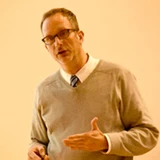Galileo Conferences
EGU Galileo Conferences are named in honour of Galileo Galilei, the famous Italian physicist, philosopher, astronomer and mathematician, universally recognised as the founder of modern science.
The EGU Galileo Conferences address well-focused cutting-edge topics at the frontier of geosciences research. A limited number, typically about one hundred, internationally recognised scientists meet for 3 to 5 days to discuss and debate issues at the forefront of the discipline. The conferences are informal: the state-of-the-art is outlined in keynote presentations designed to trigger in-depth discussion of important aspects of the conference topic. Usually about 50% of the conference time is dedicated to debate and dialogue, culminating in a final round table discussion where future research directions are included. Since Galileo Conferences provide an open atmosphere for sharing the latest research results, presentations and discussions are treated confidentially, unless otherwise agreed.
EGU Galileo Conferences are evaluated in a rigorous review process and a professional support group monitors the organisation of the event to guarantee a high standard. Each conference has an organising committee that is responsible for the scientific programme and includes at least one member who is familiar with the proposed conference location and one EGU delegate appointed by the EGU Council. The EGU delegate communicates with the EGU. Immediately after each conference, the delegate writes a brief report of the conference which is published on the EGU website. Conference organisers are expected to publish a state-of-the-art paper about the conference topic and its outcomes in the appropriate EGU open-access journal, or under special circumstances, in equivalent high-impact journals. In addition to this paper, the organising committee is encouraged to publish a special conference proceeding issue in one of the EGU journals.
Galileo Conferences are financed by the participant’s registration fees and the EGU financial support. Consequently, the organising committee can fully focus on the scientific aspects of the conference. EGU will cover a potential deficit of the event (note that any potential benefit will be credited to EGU).
Consequently, the organising committee can fully focus on the scientific aspects of the conference.
EGU supports the conference by:
- Providing up to €8000, where €5000 is allocated to support the participation of early career scientists and up to €3000 is allocated for web hosting.
- Putting at the disposal of the organisers conference organisation tools including web hosting, as well as the abstract, programme and registration management through a contract between the official technical provider: Copernicus Meetings and the conference organiser.
- Further organisational support (e.g. venue, poster boards, catering, etc.) can be obtained through Copernicus Meetings for an additional cost, to be decided upon when signing the contract.
Note that most of the costs of the above-mentioned services will have to be covered from the registration fees. Web hosting as well as registration management are mandatory and will be charged by Copernicus depending on the number of participants. A contract for these services will be issued by Copernicus Meetings. Please be aware that the organising committee must include a member from an institution from the same country that will officially host the event and can deal with financial matters (taxation reporting to the local authority) in the respective country.
Financial support from other organisations will reduce the conference fee and is welcomed.
For more information and to apply, go to the submitting a Galileo Conference proposal page.
Need help?
If you have any questions regarding Galileo Conferences please do not hesitate to contact:

